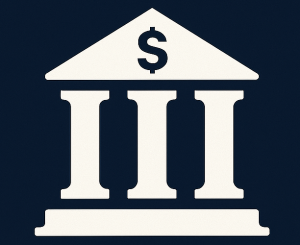CBDCs in Vietnam: Freedom or Financial Chains?
What Even IS a CBDC, Anyway? And Why Should Vietnam Care?
Okay, so let’s be real. When I first heard about CBDCs – Central Bank Digital Currencies – I was totally lost. It sounded like something out of a sci-fi movie, you know? Like, are we all going to be paying for coffee with government-issued crypto now? Basically, a CBDC is a digital form of a country’s fiat currency. Think of it as a digital version of the Vietnamese Dong, backed and issued by the State Bank of Vietnam.
The idea is to modernize payments, potentially reduce costs, and maybe even reach people who are currently excluded from the traditional banking system. That last point is especially interesting for a country like Vietnam, right? So many people still rely on cash. A digital dong could make things easier, safer, and maybe even boost the economy. I remember trying to send money to my grandma in the countryside, and the fees from the bank were outrageous! A CBDC *could* cut those costs down significantly. But then… there’s that nagging feeling. Like, what’s the catch?
And honestly, the more I dug into it, the more I realized this isn’t just some nerdy tech thing. This is about power, control, and the future of money. Which is a pretty big deal, if you ask me. Are we talking about a more efficient financial system, or a potential tool for government surveillance? That’s the million-dollar question, isn’t it?
The Potential Upsides: More Than Just Digital Dong?
Okay, let’s try to be optimistic for a minute. Let’s imagine a world where Vietnam has a successful CBDC. What could that look like? Well, for starters, imagine instant, nearly free transactions. No more waiting days for money to transfer, no more ridiculous fees eating into your hard-earned cash. That’s a huge win, especially for small businesses and people sending remittances.
Then there’s the potential for financial inclusion. Millions of Vietnamese people, particularly in rural areas, don’t have access to traditional banking services. A CBDC, accessed through a smartphone, could bring them into the formal financial system, opening up opportunities for loans, investments, and a more secure financial future. Plus, the government could distribute benefits and subsidies more efficiently, directly to people’s digital wallets. No more lost checks or corrupt officials skimming off the top. In theory, anyway.
And let’s not forget about the fight against illicit activities. A digital currency could make it harder for criminals to hide their money, making it easier to track and prevent money laundering and other financial crimes. Plus, for the government, it could mean better data collection and analysis, allowing for more informed economic policies. So, on paper, it all sounds pretty good, right? But… there’s always a “but,” isn’t there?
The Dark Side of Digital Dong: Surveillance and Control
Now, let’s talk about the stuff that keeps me up at night. The potential downsides of a CBDC are pretty scary, if you think about it. I mean, we’re talking about giving the government direct access to every single transaction we make. Every purchase, every payment, every little thing. That’s a LOT of power. And who even knows how that data could be used?
Imagine a scenario where the government doesn’t like your political views. Could they restrict your access to your own money? Could they monitor your spending habits and punish you for buying things they don’t approve of? Sounds like something out of a dystopian novel, right? But it’s not entirely impossible.
And then there’s the issue of privacy. Even if the government promises to protect our data, can we really trust them? Data breaches happen all the time. What if our financial information falls into the wrong hands? I remember back in 2016 I had all my information stolen from one of those department store data breaches, ugh what a mess!
Plus, there’s the risk of technical glitches and system failures. What happens if the CBDC network goes down? Suddenly, no one can buy anything, and the entire economy grinds to a halt. And let’s not forget about the potential for cyberattacks. A CBDC would be a huge target for hackers, who could steal billions of dollars or disrupt the entire financial system. So, yeah, the potential risks are definitely something to worry about.
Vietnam’s Unique Challenges and Opportunities
Okay, so how does all of this apply to Vietnam specifically? Well, Vietnam has a unique set of challenges and opportunities when it comes to CBDCs. On the one hand, the country has a rapidly growing economy and a young, tech-savvy population. That creates a fertile ground for innovation and adoption of new technologies like CBDCs. Plus, as I mentioned before, there’s a real need to improve financial inclusion and reduce reliance on cash.
On the other hand, Vietnam also has a strong tradition of government control and a less-than-stellar record on privacy. That raises concerns about how a CBDC might be used and whether people will trust the government to protect their financial data. Plus, the country’s financial infrastructure is still developing, which could make it difficult to implement and manage a CBDC effectively. So, it’s a bit of a mixed bag.
I think Vietnam needs to proceed cautiously and transparently. They need to engage in a wide-ranging public debate about the pros and cons of CBDCs and ensure that any implementation is done in a way that protects privacy, promotes financial inclusion, and fosters innovation. It’s a tall order, but it’s essential if Vietnam wants to avoid the pitfalls of CBDCs and harness their potential benefits. Was I the only one confused by the proposed rollout plans?
So, What’s the Verdict? Chains or Freedom?
Honestly, I’m still not sure what to think about CBDCs. Part of me is excited about the potential for a more efficient and inclusive financial system. Part of me is terrified of the potential for government surveillance and control. It’s like, the technology itself is neutral, but it can be used for good or evil, depending on who’s in charge and how it’s implemented.
I guess the key is to stay informed, stay vigilant, and demand transparency and accountability from our leaders. We need to make sure that any CBDC implementation is done in a way that protects our rights and freedoms and promotes the common good. It’s not going to be easy, but it’s too important to leave to the experts. We all need to be part of the conversation. You know?
And maybe, just maybe, we can create a future where digital currencies truly liberate us, instead of binding us in financial chains. But honestly, who even knows what’s next? It’s all a bit uncertain, and that uncertainty is what’s keeping me up at night. We’ll just have to wait and see what happens. If you’re as curious as I was, you might want to dig into the experiences of other countries experimenting with CBDCs. It could provide some clues to what’s coming for Vietnam.














